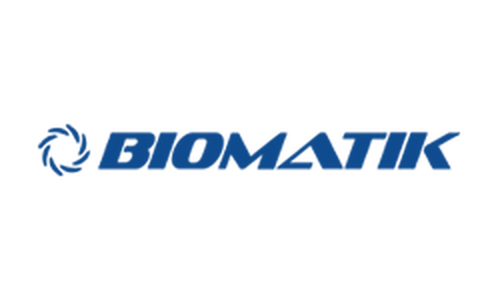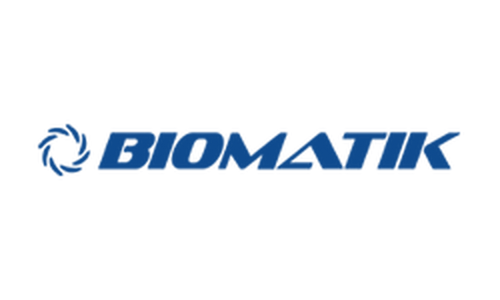Product Description
Recombinant Human C-C motif chemokine 14 protein (CCL14) (Active) is available at Gentaur for Next week Delivery.
Gene Name: CCL14,NCC2,SCYA14
Alternative Names : Chemokine CC-1/CC-3, HCC-11-74 NCC-2, Small-inducible cytokine A14
Expression Region : 28-93aa
AA Sequence : GPYHPSECCF TYTTYKIPRQ RIMDYYETNS QCSKPGIVFI TKRGHSVCTN PSDKWVQDYI KDMKEN
Sequence Info : Partial
Tag Info : Tag-Free
Theoretical MW : 7.8 kDa
Storage Buffer : Lyophilized from a 0.2 µm filtered PBS, pH 7.4
Endotoxin Level : Less than 1.0 EU/µg as determined by LAL method.-
Biological Activity : The biological activity determined by a chemotaxis bioassay using human monocytes is in a concentration range of 5.0-20 ng/ml.
Storage : Short term: -20°C; Long term: -80°C. Minimize freeze and thaw cycles.
Research Area : Immunology
Restriction : For Research Use Only. Not for use in diagnostic procedures, drug use, or for administration to humans or animals.
Relevance : Has weak activities on human monocytes and acts via receptors that also recognize MIP-1 alpha. It induced intracellular Ca(2+) changes and enzyme release, but no chemotaxis, at concentrations of 100-1,000 nM, and was inactive on T-lymphocytes, neutrophils, and eosinophil leukocytes. Enhances the proliferation of CD34 myeloid progenitor cells. The processed form HCC-1(9-74) is a chemotactic factor that attracts monocytes eosinophils, and T-cells and is a ligand for CCR1, CCR3 and CCR5. {ECO:0000269|PubMed:11085751}.
Function : Has weak activities on human monocytes and acts via receptors that also recognize MIP-1 alpha. It induced intracellular Ca(2+) changes and enzyme release, but no chemotaxis, at concentrations of 100-1,000 nM, and was inactive on T-lymphocytes, neutrophils, and eosinophil leukocytes. Enhances the proliferation of CD34 myeloid progenitor cells. The processed form HCC-1(9-74) is a chemotactic factor that attracts monocytes eosinophils, and T-cells and is a ligand for CCR1, CCR3 and CCR5.
Involvement in disease :
Subcellular location : Secreted
Protein Families : Intercrine beta (chemokine CC) family
Tissue Specificity : Expressed constitutively in several normal tissues: spleen, liver, skeletal and heart muscle, gut, and bone marrow, present at high concentrations (1-80 nM) in plasma.
Paythway : Chemokinesignalingpathway
Uniprot ID : Q16627
 Euro
Euro
 British Pound
British Pound
 US Dollar
US Dollar








